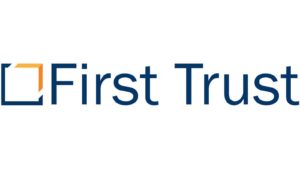
The flying car industry remains nascent. Pretty much every stock within the sector is a penny stock. That means even the best-known names across the sector continue to be highly speculative. And with speculative investment comes the potential for huge returns.
Gross will fuel those large returns. Depending upon where you look, expected growth rates are very high and range from above 35% to as high as 45%. That means investors can realistically expect that capital invested today has the potential to double within two years.
Alef Aeronautics expects its flying car to be on the road by the end of 2025. It’s an exciting time for the flying car industry, which makes the stocks below highly intriguing.
Joby Aviation (JOBY)

Joby Aviation (NYSE:JOBY) remains one of the leading names in the flying car stock conversation. The company’s website highlights Electric aerial ridesharing first. That would logically lead investors to believe that the company is a Rideshare first firm.
However, the truth is more complex. The company is developing markets spanning military applications, rideshare applications, and utility in airport settings. The company’s electric vertical takeoff and Landing vehicles are designed to be piloted by a single pilot and will carry four passengers. They also boast a top speed over 200 mph.
The company recently demonstrated its eVTOL vehicles In New York City. The exhibition was The first time the company had flown its vehicles in an urban setting. The company is partnered with Delta Airlines (NYSE:DAL) and expects JFK Airport to be one of its primary markets. Days later, Joby Aviation was awarded a grant of 9.8 million, allowing the company to expand its California facilities and create 690 jobs. The company also began delivering vehicles to the Department of Defense during the most recent quarter.
Archer Aviation (ACHR)

Archer Aviation (NYSE:ACHR) Is the other leading name in the flying car space. Its stock is one of the most covered in the sector, and it competes in many of the same areas as Joby Aviation.
The company’s eVTOLs Have a very similar appearance to those from Joby Aviation, and the company is developing similar markets. Archer Aviation has aligned itself with Stellantis (NYSE:STLA), Boeing, NYSE:BA), and United Airlines (NASDAQ:UAL) as major partners.
The company fully intends to develop air taxi services, particularly in Chicago at O’Hare Airport and A direct route between Newark, New Jersey, and JFK Airport. United Airlines has already purchased 100 vehicles from the company. It has also partnered with Stellantis to build manufacturing facilities in Georgia.
Archer Aviation has developed strong relationships with the private sector. Meanwhile, the company has also developed strong ties to the public sector. During the third quarter, Archer Aviation received the first million-dollar payment from the airport in a contract that could be worth up to $142 million.
EHang Holdings (EH)

Strictly speaking, EHang Holdings (NASDAQ:EH) doesn’t qualify as a penny stock because it trades for more than $10. However, it trades for under $20, so we’ll give it the benefit of the doubt.
EHang Holdings Is the best-known Chinese space in the sector and represents a strong choice for investors in that geography. It’s fundamentally different from Joby and Archer in that its vehicles are crewless. Instead, its vehicles operate autonomously and can carry two passengers. The company has tested its vehicles over multiple flight routes across China and logged thousands of hours of experience.
EHang Is growing rapidly, with revenues that reached $3.9 million during the third quarter, representing 248% growth on a year-over-year basis. Meanwhile, losses narrowed by 12.3% to $9.8 million. Despite the losses, the company remains at low risk of bankruptcy based on its Altman Z score.
Vertical Aerospace (EVTL)

Vertical Aerospace (NYSE:EVTL), unlike EHang Holdings, is strictly a penny stock with a price below $1. The company is building a piloted vehicle that will carry four passengers. So, in that regard, it is very similar to Joby and Archer.
The company expects to complete the build of its second prototype of its VX4 vehicle during the first quarter of 2024. That prototype will feature the company’s proprietary battery packs. That vehicle will also Begin an intensive flight test program in 2024 and expects to receive full certification from the UK Civil Aviation Authority (CAA) in 2026.
It’s important to remember that Vertical Aerospace is a pre-revenue firm. Its operating losses reached £57.9 million through the first nine months of 2023. that represented a slight improvement from the same period a year prior. The company anticipates using £80 million in cash outflows over the next 12 months. Further, the company fully anticipates the need for further financing moving forward, which has the potential to decrease its share price.
Lilium (LILM)

Lilium (NASDAQ:LILM) Is Germany’s entrant in the flying car stock space. The company is approaching the development of the flying car sector fundamentally differently. Instead of what is essentially an electric helicopter with propellers, Lilium is instead developing an electric jet. That means it has a series of jet engines instead of propellers on the wings.
The company began the assembly of those jet engines in late September In its Weissling, Germany manufacturing plant. Each of the motors weighs just over 4 kg or 9 lb. Just before that announcement, the company began assembling its future fuselage systems.
The company hasn’t released much information regarding its Financial fundamentals. The company did release information in Late July that it had Arranged an upsized capital raise worth $192 million. That Capital raise should be enough to keep the company progressing towards its goals. Furthermore, the company also announced at that time that it had reached a preliminary agreement to provide 100 of its vehicles to the municipality of Shenzhen.
Eve Holdings (EVEX)

For several reasons, Eve Holdings (NYSE:EVEX) is interesting among flying car stocks. Most companies on this list are preparing for operations in the United States as a primary goal. However, Eve Holdings is instead preparing for operations that heavily feature European routes.
Further, Eve Holdings has signed a letter of intent With South Korean Urban Air Mobility service providers. That letter was signed in September, laying the groundwork for the firm to develop operations in East Asia.
Like other firms on this list, Eve Holdings is a pre-revenue firm. Third-quarter losses reached $31.2 million, which was an improvement from the $36.7 million it had lost a year prior.
One of the primary reasons to consider Eve Holdings is simply that the firm is a subsidiary of Brazilian airplane manufacturer Embraer (NYSE:ERJ), theoretically, that should Grant The Firm greater access to financing than its competitors.
First Trust Nasdaq Transportation ETF (FTXR)

First Trust Nasdaq Transportation ETF (NASDAQ:FTXR) Is by far the safest stock on this list. ETFs are designed to diversify the way from risk and generally protect investors. At the same time, ETFs exposed the same investors to secular growth in up-and-coming sectors such as flying cars.
This particular ETF tracks an index called the NASDAQ US Smart Transportation Index. It comes with a relatively small 0.6% expense ratio. The ETF is primarily invested in leading car manufacturers with heavy electric vehicle investments. Leading positions in the fund include Ford (NYSE:F), General Motors (NYSE:GM), and Tesla (NASDAQ:TSLA).
The equity has moved between prices that range from $25 to $31 in 2023. At present, its shares trade for approximately $27. Those shares also include a dividend yielding 1.79%. First Trust NASDAQ Transportation ETF or a similar ETF will be a safe, best bet for investors who aren’t willing to expose themselves to the high risk inherent in flying car stocks.
On the date of publication, Alex Sirois did not have (either directly or indirectly) any positions in the securities mentioned in this article. The opinions expressed in this article are those of the writer, subject to the InvestorPlace.com Publishing Guidelines.






